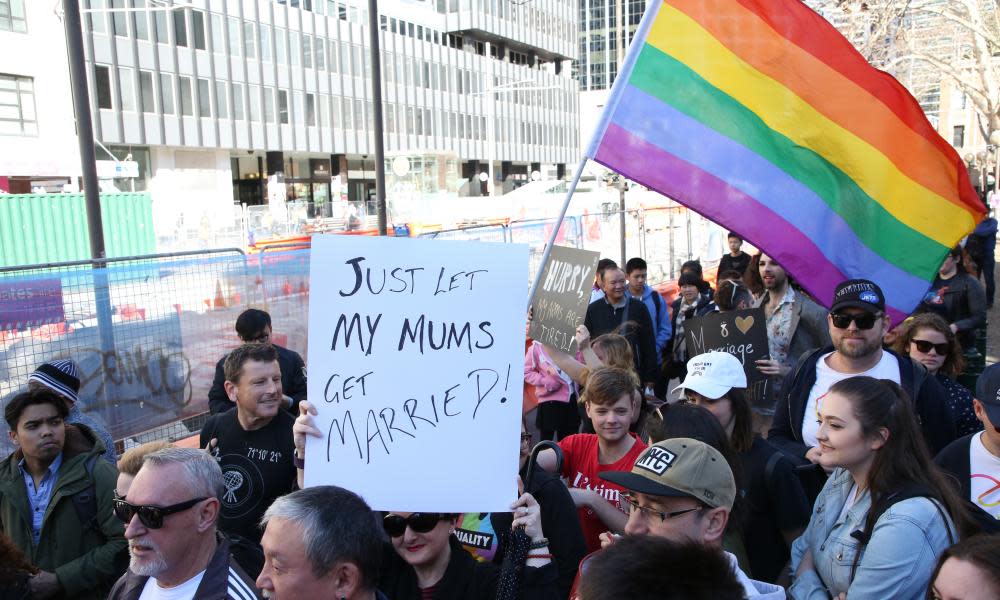Think of the kids: why marriage equality opponents are wrong on parenting

People opposed to marriage equality have made a few arguments for why it shouldn’t be legalised, including one that doesn’t stack up: that children with same-sex parents are worse off than kids with heterosexual parents.
Sky News presenter Caroline Marcus had this to say in a column: “Decades of scientific research confirm, on average, children have the best outcomes when raised by their married biological mother and father, a point made by 374 members including six past state presidents of peak medical body, the Australian Medical Association (AMA).”
And government MP Kevin Andrews said on Sky News: “What we know from decades of social science research is that the best environment for raising children, the optimal environment for raising children, is having two loving parents. A man and a woman. A husband and wife in a stable relationship.
“Now that doesn’t mean other relationships aren’t able to be successful for children, but overwhelmingly the social science points to that being the optimal situation.”
Firstly, it’s worth pointing out the marriage equality vote is not about LGBTI parents having children. They are already able to do so, and arguments about parenting aren’t directly relevant to the vote. As AMA president Michael Gannon told Fairfax: “The issue before the Australian people, before the Australian parliament, is not about same-sex parenting. That’s not even the discussion that is being debated.”
Secondly, even if it was about parenting, multiple reviews of research in this area show a broad consensus that children with same-sex parents are no worse off than children with heterosexual parents.
A review of the research by Columbia Law School, last updated in March 2017, looked at 79 studies into the wellbeing of children with gay or lesbian parents. The authors found that 75 of those studies “concluded that children of gay or lesbian parents fare no worse than other children”. The authors point out that the remaining four studies (including a widely cited paper in the journal Social Science Research) that did find negative outcomes had methodological issues in that they did not control for the influence of divorce, and used questionable definitions for the same-sex parent groups.
Similarly, a review published by the Australian Institute of Family Studies in 2013 concluded: “Overall, research to date considerably challenges the point of view that same-sex-parented families are harmful to children. Children in such families do as well emotionally, socially and educationally as their peers from heterosexual couple families.”
A 2010 meta-analysis of 33 studies, published in the Journal of Marriage and Family, found that “no research supports the widely held conviction that the gender of parents matters for child wellbeing”.
These reviews are supported by comments from prominent health bodies in Australia, with both the AMA and the Australian Psychological Society making similar conclusions.
When Andrews was asked to provide a source for his claims, a spokesperson said it was addressed in his 2012 book Maybe ‘I Do’, but when requested, did not provide detail of any specific studies cited in the book.
Marcus did not respond to a request to provide a source for her claims.

 Yahoo News
Yahoo News 